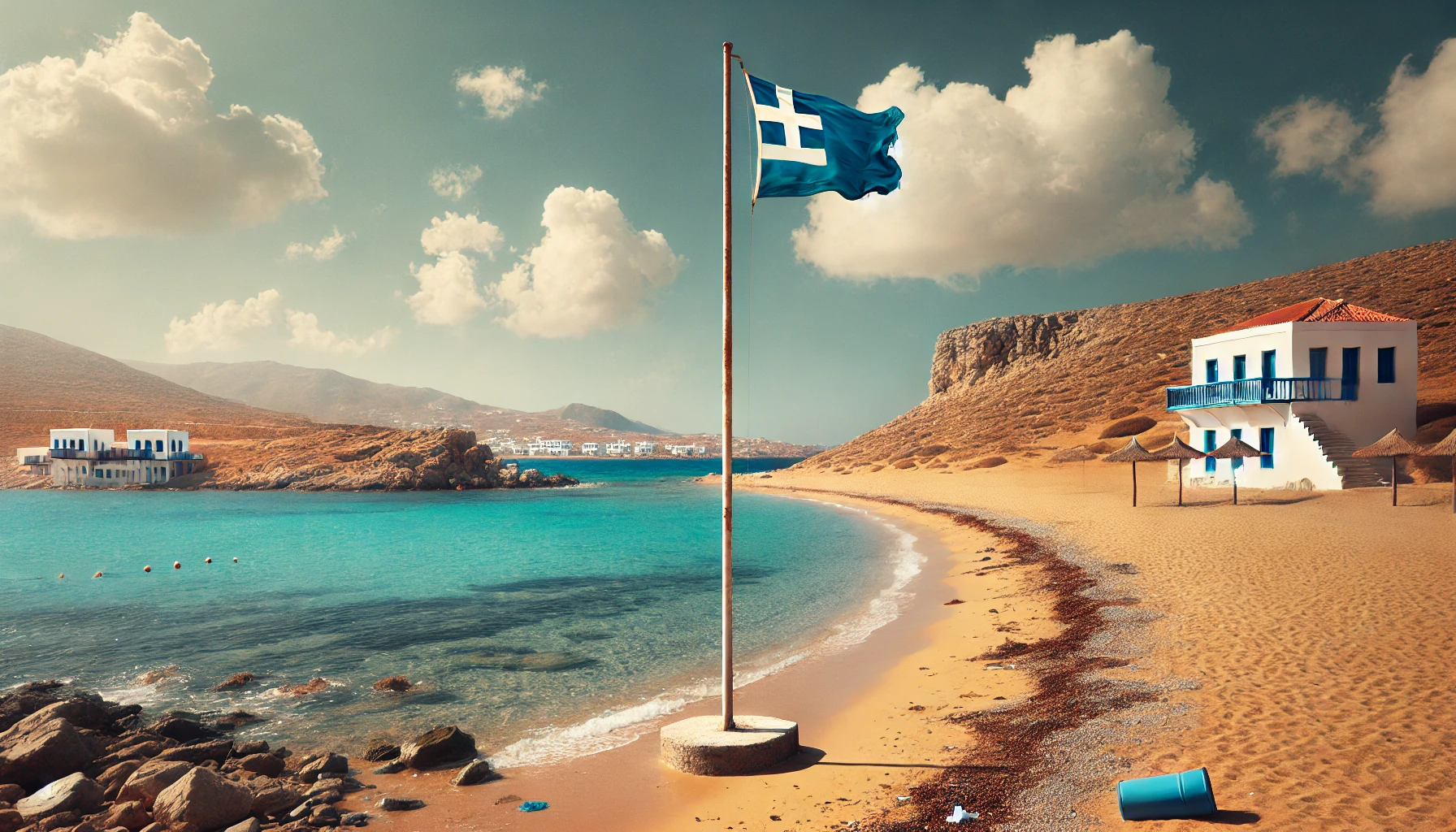Tourism plays a crucial role in both the preservation and degradation of Greece’s Blue Flag beaches. On one hand, the revenue generated by tourism contributes significantly to the local economy, providing the funds necessary for maintaining infrastructure, protecting natural habitats, and promoting sustainability. On the other hand, if tourism is not managed responsibly, it can lead to serious environmental damage, as overcrowding, litter, and waste can quickly overwhelm the local ecosystem.
To ensure that Greece’s Blue Flag beaches remain viable, it is essential that tourists adopt a more sustainable approach to travel. Here are a few ways travelers can help preserve these pristine environments:
Read Also: DWP Triggers Cold Weather Payments for Another 200000 People: Are You Eligible?
Practice Responsible Waste Disposal
Tourists should be conscious of their waste and always dispose of it in the designated bins. Bringing reusable items such as water bottles, bags, and utensils can also reduce the amount of single-use plastic that ends up in the ocean.
Respect Wildlife
Greece’s Blue Flag beaches are often home to endangered species, such as the loggerhead sea turtle. Tourists should be mindful of wildlife and avoid disturbing nesting areas or wildlife habitats.
Follow Local Guidelines
Many Greek coastal areas have specific guidelines for tourists to follow, such as restricted areas for swimming or sunbathing. Adhering to these rules ensures that both the environment and other visitors are respected.
Support Eco-Friendly Businesses
Choosing accommodations, restaurants, and tour operators that prioritize sustainability can make a big difference. Many local businesses on Greek islands and mainland beaches are adopting green practices, such as using renewable energy or reducing plastic usage, to help protect the environment.
Government and Private Sector Collaboration
Efforts to protect Greece’s Blue Flag beaches are not solely in the hands of local governments or environmental groups. Collaboration between the public and private sectors is essential to ensure the sustainability of these beaches.
Public Initiatives:
The Greek government has already begun implementing national programs that focus on protecting coastal areas. These initiatives include stricter regulations on construction near beaches, improved waste management systems, and increased monitoring of water quality. The Ministry of Tourism has also launched campaigns to promote sustainable tourism and raise awareness about the importance of preserving Blue Flag beaches.
Private Sector Responsibility:
Many businesses that operate near Blue Flag beaches, such as hotels, resorts, and tour companies, have a direct role in preserving the environment. These businesses can adopt eco-friendly practices, such as using energy-efficient systems, supporting beach clean-up efforts, and promoting conservation to their customers. Public-private partnerships can create a more sustainable tourism model, where both economic growth and environmental protection are prioritized.
The Future of Greece’s Blue Flag Beaches
While the challenges Greece’s Blue Flag beaches face are significant, there is still room for hope. The ongoing efforts by local authorities, businesses, and environmentally conscious travelers are making a positive impact. Moreover, the shift towards sustainable tourism and responsible travel practices may ensure that these beautiful beaches remain protected for future generations.
It is crucial that we do not lose sight of the importance of these natural treasures. Greece’s Blue Flag beaches are not just tourist destinations—they are vital ecosystems that support biodiversity, contribute to the local economy, and provide unparalleled beauty for all to enjoy. By taking collective action, we can ensure that the Blue Flag status continues to serve as a symbol of excellence, and that Greece’s coastlines remain some of the most stunning and well-preserved in the world.
Conclusion
Discover the truth behind the Blue Flag Greek Beaches Lost and what it means for tourism and the environment. The disappearance of some of Greece’s Blue Flag beaches is a worrying trend, but it is not one without a solution. Through increased efforts in sustainable tourism, responsible management, and government-private sector collaboration, there is hope for reversing this decline and ensuring the protection of these valuable coastal environments. Whether you’re a tourist or a local, it’s up to all of us to do our part in preserving these Blue Flag beaches for future generations to enjoy.
Read Also: DWP Triggers Cold Weather Payments for Another 200000 People: Are You Eligible?
FAQs (Continued)
5. Are Blue Flag beaches the only beaches in Greece worth visiting?
No, while Blue Flag beaches are exceptional in terms of cleanliness and sustainability, Greece is home to many beautiful beaches, some of which may not have Blue Flag certification. However, Blue Flag beaches are an excellent choice for those who prioritize environmental responsibility and quality.
6. How can I help protect Greece’s beaches as a tourist?
In addition to following the guidelines for waste disposal and respecting wildlife, you can also participate in local beach clean-up efforts, support eco-friendly businesses, and reduce your overall environmental impact during your stay.
7. Can blue flag greek beaches lost their certification permanently?
No, Blue Flag certification can be regained if the beach addresses the issues that led to the loss of the status. However, it is crucial for beach authorities and local governments to act swiftly to resolve any issues, as maintaining the Blue Flag requires consistent environmental management.
8. How can I find out which beaches currently hold Blue Flag status in Greece?
You can visit the official Blue Flag website or use their app to find up-to-date information about Blue Flag beaches in Greece and around the world. Many Greek tourism websites also list the country’s certified beaches.
As Greece continues to confront environmental challenges, it is essential that we all play a role in ensuring that the country’s Blue Flag beaches remain pristine, sustainable, and accessible for future generations. By making responsible choices, supporting sustainable businesses, and advocating for effective policy changes, we can all contribute to the preservation of Greece’s natural beauty and its iconic beaches.




